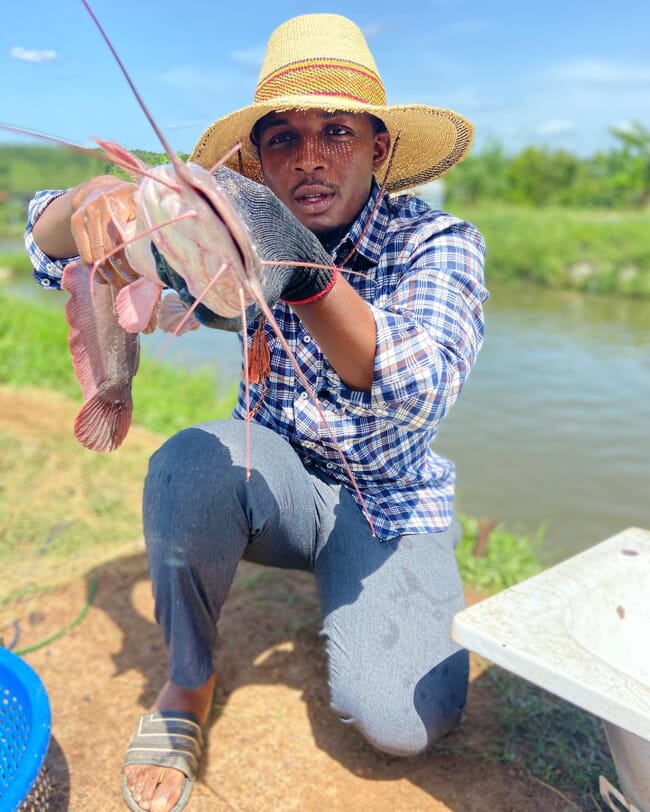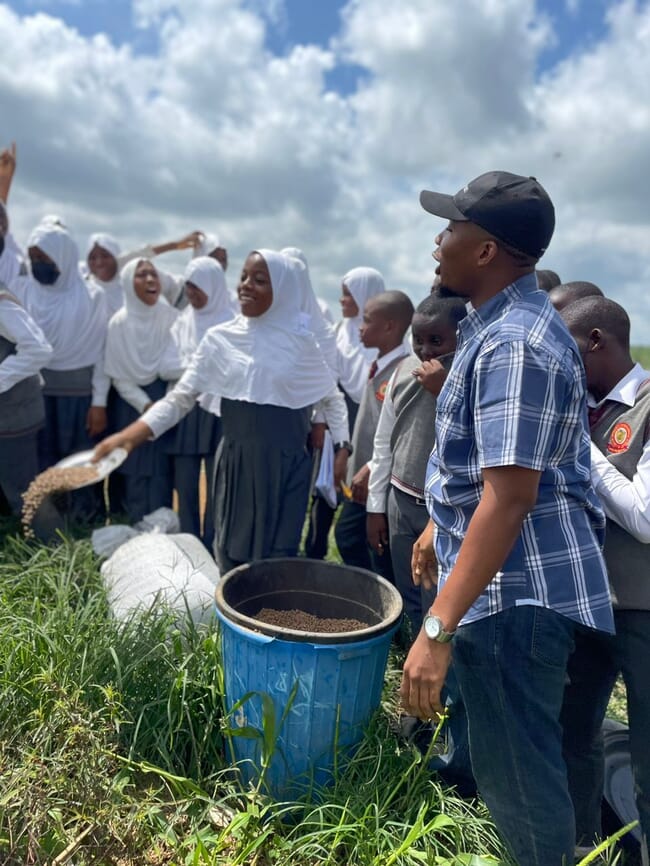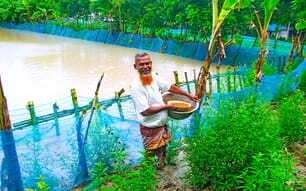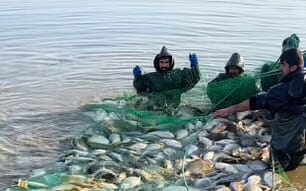
Can you tell us a bit about your background?
I am the CEO of BawBaw Nigeria Limited, which has a subsidiary called BawBaw farms - one of the largest catfish farms and processing companies in sub-Saharan Africa. We started catfish farming in 2007. Then, it was home-grown catfish farming with the pond at the back of my house. After that, we added a hatchery.
After my university days, I decided to go into catfish farming fully, and in 2015 I moved from my house to an [area of] open land where we had our first earthen pond. Later, we thought that we needed a bigger space for our production to get better so we moved to our own permanent site, which covers seven hectares of land in Ilorin.
We started gradually but our ponds reached 15 after three years and we now operate over 60. We have 48 staff. What we do is to employ Kwara people and train those who can’t go to school so they can have skills in catfish farming.
When I started home-grown, I started with just 500 fingerlings. Now we harvest over seven tonnes of fish a month. And by the end of the year we are hoping to produce at least ten tonnes in a month. On average, we earn between nine to ten million naira [€5,140 to €5,711] from catfish sales in a month. For our feed, we sell up to 17 tonnes a week.
What inspired you to embark on a career in aquaculture?
I have a BSc in microbiology from Kwara State University, but my brother Hassan started fish farming when I was in secondary school and I picked up an interest in it. I wanted to do it myself so I started making plans of how to go into catfish farming after my university education.
What are your key focus areas?
I produce fish from fingerlings that we supply to people across the country. Some of the fish are smoked and filleted and distributed to various parts of the country.
We also produce catfish feeds for farmers who believe in our production and what we feed our fish. Our feeds are palatable and stable in water, with uniform feed size to cater for different stages of production, to ensure the fish receive all of the nutrients they require. There are some people who don’t buy fish from us, but feed. After selling to them, they call us for consultation. We also build fish farms for other people.
We also do training for people intending to become farmers as well as students interested in fish farming.

What sort of production systems do you operate?
We operate earthen ponds. Presently, we have 69 in operation with the capacity for 10,000 catfish in each. We are currently working on scaling up to 83 earthen ponds. The dimensions are 60 m by 100 m and the depth is between five and eight feet. If it’s dug by human beings, it's a maximum of five feet, but if it’s dug by an excavator, we have six to eight feet.
What equipment and skills do you need to operate them?
We use shovels to dig a five foot pond and an excavator to dig between six and eight feet. After excavating, we put sand we excavated into sacks and create a wall round the pond using the sacks. We then construct and install an inlet and outlet where water can come in and out. We get our water from Asa dam, in Kwara State.
How do you source your juveniles?
We have our own hatchery which produces 70,000 fingerlings a month, of these we keep 25,000 and sell the rest to other farms in the area.
What have been the major challenges in setting up - and operating - your fish farm?
Security is a major challenge. We have had several attacks on the farm. Three years ago, we had to pay ransom after some of our staff – including our farm manager – were kidnapped. We experience frequent attacks on my fish farm. But for security reasons, I won’t like to disclose what we lost to these attacks.

What does a typical day at work involve?
I don’t have a fixed time. But when I am around, I first move around the fish farm to observe and know how the fish are responding. From there, I look at the work shift of my staff to know what each has done.
The second thing is to join my staff in feeding the fish. I also supervise the cleaning of the water. I also train my staff and don’t just give instructions. I ensure they see what I am doing.
Finally, when we have visitors, I take them round the fish farm.
What’s your biggest achievement to date?
The number of people who patronise us has grown. There are some restaurants that buy fish only from us. This gives me joy, knowing that people trust us and buy our fish and feed.
We also provide consultation services. Besides Nigeria, this consultation has taken me to other countries like Ghana and Rwanda. So many people have recommended us and we always receive visitors. The governor of Kwara state has also visited us.
Through our works at the fish farm, we have received countless awards. Currently, I am a member of the Catfish Association of Nigeria (CAFAN). This automatically made me a member of Kwara State Association of Catfish Farmers, where I presently serve as the chairman of the association.
What’s your ultimate ambition in the aquaculture sector?
To keep improving and training more people to harness the potential of fish farming. By the end of the year, we are looking at reaching 100 to 105 earthen ponds.








